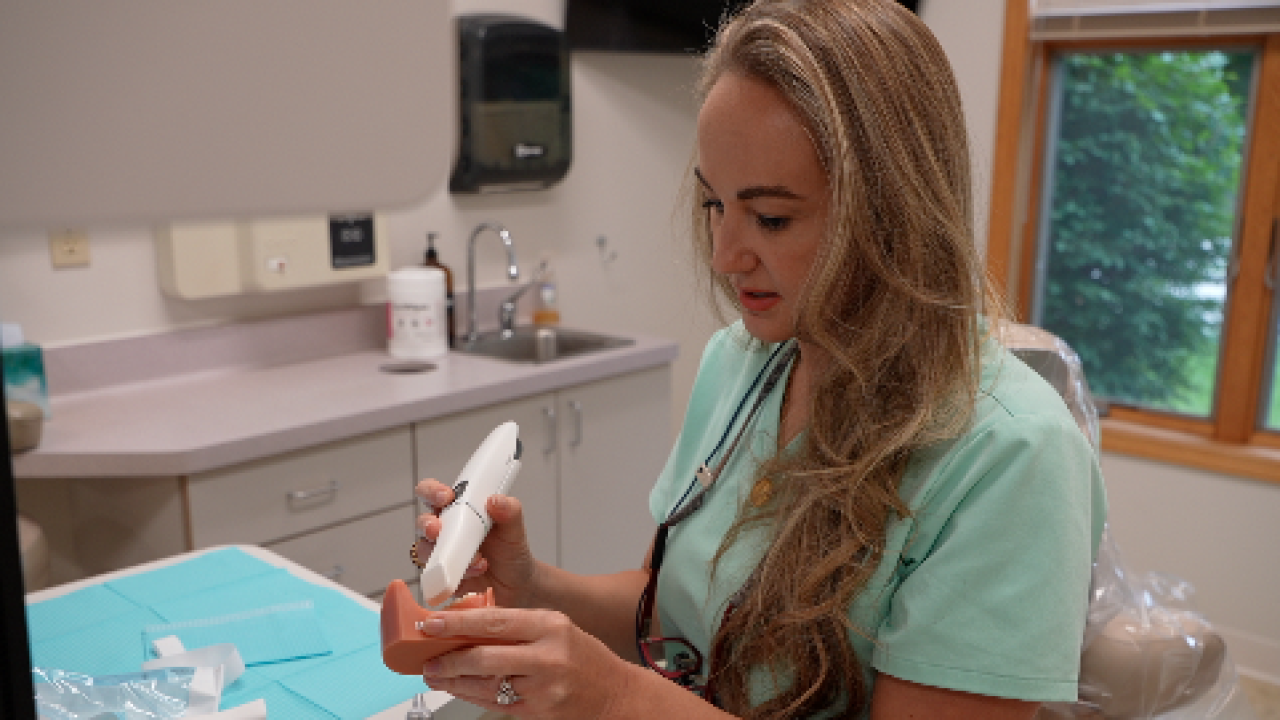MILWAUKEE — A major dental insurance provider has purchased dozens of dental offices across Wisconsin, raising concerns from local dentists and the American Dental Association about potential conflicts of interest.
Dr. Emily Eckdahl, a Brookfield dentist, reached out to TMJ4 with her concerns about this development.
"For the first time in Wisconsin state history, we have a large dental insurance company that is acquiring dental offices throughout the state," Eckdahl said. "When the same entity is responsible for providing dental benefits and dental care, the line gets really blurry."

Wisconsin is one of just a handful of states that does not require dental offices to be owned by licensed dentists. Still, Eckdahl never expected an insurance company would take advantage of this opportunity.
"You're not going to drive down the street and see Delta Dental owns this dental office, you're going to have to do some investigative research yourself to decide if that office you're attending is where you want to go and who owns it," Eckdahl said.
After listening to concerns from multiple dental professionals, TMJ4 discovered through state filings that Delta Dental — the nation's largest dental insurance provider — now owns dental offices in Brookfield, Mequon, and New Berlin, among others, after purchasing 25 practices across Wisconsin from Cherry Tree Dental.
Watch: Dental community raises concerns as Delta Dental buys 25 Wisconsin practices
The acquisition raises questions about how treatment decisions might be influenced when the same company both provides care and decides what treatments to cover financially.
"Previously, a dentist would be able to diagnose exactly what that patient needs and then submit it to the insurance, and then the insurance would decide what they would want to cover," Eckdahl explained. "That will still happen, but the insurance company is now tied financially to the entire situation, and so there is a conflict of interest in if the patient's diagnosis and their treatment needs are going to be the main focus or the overall financial aspect of the company."
The Wisconsin Dental Association has been working to understand the implications of this for patients and providers alike.
"One entity shouldn't control the entire transaction," said Mark Paget with the Wisconsin Dental Association. "I think {dentists} want to make sure at the end of the day the patients aren't being cheated, or the patients aren't being served in a way that the dentists want them to be served."

The American Dental Association recently issued a statement about Delta Dental becoming both payer and provider. It says in part, "From a business standpoint, dental insurance companies seek to minimize cost and maximize profit. As a result, patients may find their treatment options limited to what is most cost-effective for the insurer, not necessarily what is most effective for their oral health."

When TMJ4 took these concerns directly to Delta Dental of Wisconsin, spokesperson Jed Roher acknowledged they anticipated questions about the acquisition.
"When we engage in this transaction, we knew there would be questions," Roher said.
Roher explained that Delta Dental's primary motivation for purchasing dental offices is to ensure access in rural parts of Wisconsin, though he acknowledged several of the acquired practices are in the Milwaukee metro area.
As for what this means for patients of these practices, Roher stated, "Ultimately, today nothing changes.”
Roher went on to say, “With Cherry Tree Dental, they're going to have their own independent leadership team that's making all carrier contracting decisions. They're gonna be having those kinds of rate-setting negotiations independently."

Back at Eckdahl's office, her concerns extend beyond the immediate impact to what this might mean for the future of dental care in Wisconsin.
"This is maybe a slippery slope into the future," Eckdahl said. "With Wisconsin being the first state, with this being the first 20-something offices, we don't know if this is going to turn into 200 offices or 2,000 offices."
If you're a patient at one of the Delta Dental practices and have questions about what this means for you, reach out to Ben.Jordan@TMJ4.com.
This story was reported by Lighthouse reporter Ben Jordan and has been converted to this platform with the assistance of AI. Our editorial team verifies all reporting on all platforms for fairness and accuracy.
It’s about time to watch on your time. Stream local news and weather 24/7 by searching for “TMJ4” on your device.
Available for download on Roku, Apple TV, Amazon Fire TV, and more.








